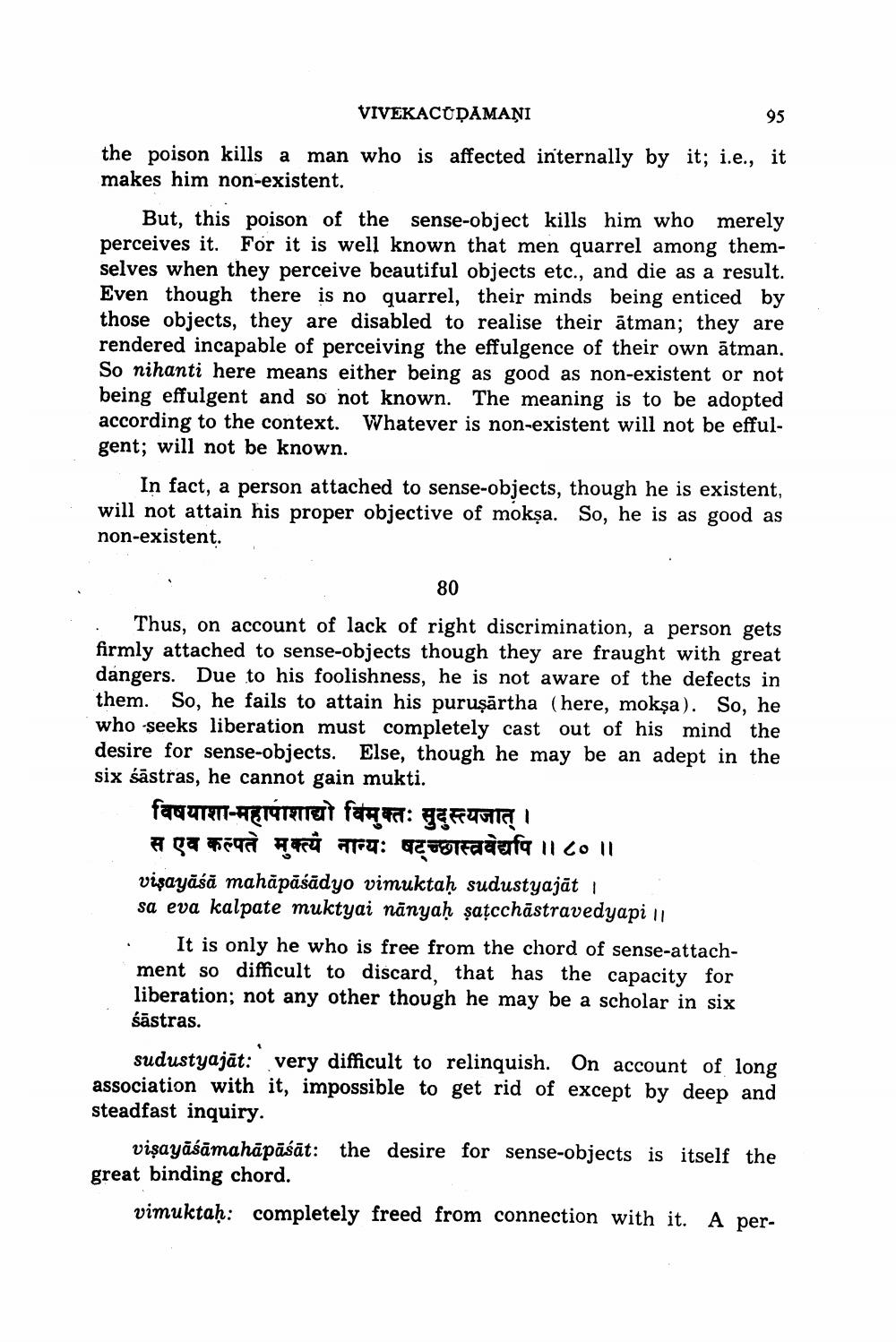________________
VIVEKACUDAMANI
the poison kills a man who is affected internally by it; i.e., it makes him non-existent.
But, this poison of the sense-object kills him who merely perceives it. For it is well known that men quarrel among themselves when they perceive beautiful objects etc., and die as a result. Even though there is no quarrel, their minds being enticed by those objects, they are disabled to realise their ātman; they are rendered incapable of perceiving the effulgence of their own ātman. So nihanti here means either being as good as non-existent or not being effulgent and so not known. The meaning is to be adopted according to the context. Whatever is non-existent will not be effulgent; will not be known.
In fact, a person attached to sense-objects, though he is existent, will not attain his proper objective of mokṣa. So, he is as good as non-existent.
95
80
Thus, on account of lack of right discrimination, a person gets firmly attached to sense-objects though they are fraught with great dangers. Due to his foolishness, he is not aware of the defects in them. So, he fails to attain his puruṣārtha (here, mokşa). So, he who seeks liberation must completely cast out of his mind the desire for sense-objects. Else, though he may be an adept in the six sastras, he cannot gain mukti.
4
विषयाशा - महापाशाद्यो विमुक्तः सुदुस्त्यजात् ।
स एव कल्पते मुक्त्यै नान्यः षट्च्छास्त्रवेद्यपि ॥ ८० ॥ viṣayāśā mahāpāśādyo vimuktaḥ sudustyajat | sa eva kalpate muktyai nanyaḥ ṣaṭcchāstravedyapi ||
It is only he who is free from the chord of sense-attachment so difficult to discard, that has the capacity for liberation; not any other though he may be a scholar in six śāstras.
sudustyajāt: very difficult to relinquish. On account of long association with it, impossible to get rid of except by deep and steadfast inquiry.
viṣayāśāmahāpāśāt: the desire for sense-objects is itself the great binding chord.
vimuktaḥ: completely freed from connection with it. A per




